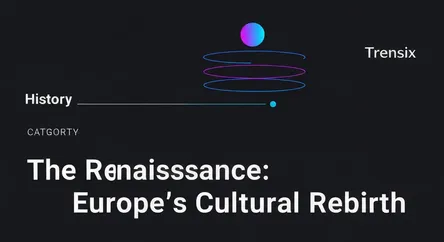History
The Renaissance: Europe's Cultural Rebirth

Discover the Renaissance, the European "rebirth" from the 14th-17th century that transformed art, science, and culture, and see how it still impacts us today.
What is it?
The Renaissance, French for "rebirth," was a transformative period in European history from the 14th to the 17th century, marking the transition from the Middle Ages to modernity. Originating in Florence, Italy, it was characterized by a renewed interest in the classical art, literature, and philosophy of ancient Greece and Rome. This era championed humanism, a philosophy that focused on human potential and achievements rather than divine matters. It produced legendary figures like Leonardo da Vinci and Michelangelo and led to groundbreaking innovations in art, science, politics, and exploration that reshaped the world.
Why is it trending?
The Renaissance remains a popular topic because its core ideas are timeless. The emphasis on humanism, individual achievement, and critical inquiry continues to shape modern values in education and personal development. Its artistic masterpieces and revolutionary scientific theories are constantly studied and referenced in contemporary culture, from university courses to popular media. The era’s spirit of challenging dogma and pushing the boundaries of human knowledge resonates in today's rapidly changing world, making it a source of endless fascination and inspiration.
How does it affect people?
The Renaissance's impact is embedded in the fabric of modern life. Its innovations laid the groundwork for the Scientific Revolution and the Age of Enlightenment. The invention of the printing press during this period democratized knowledge, paving the way for modern education and literacy. The political and philosophical ideas that emerged shaped the development of modern democratic systems. Furthermore, artistic techniques like linear perspective are still fundamental to art and design, while the Renaissance ideal of the multi-talented individual continues to influence our concept of personal success.